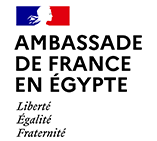The CNRS is the largest French public organization for scientific research.
Its scientific work is divided among ten national institutes specialized in the following areas: humanities and social sciences, biology, chemistry, ecology and the environment, information science, engineering and systems sciences, mathematics, physics, particle and nuclear physics, sciences of the universe.
They lead nearly a thousand units or laboratories as well as labeled departments, most of which are co-managed with other facilities: universities, scientific public establishments (EPST), grandes écoles, industries, etc.



